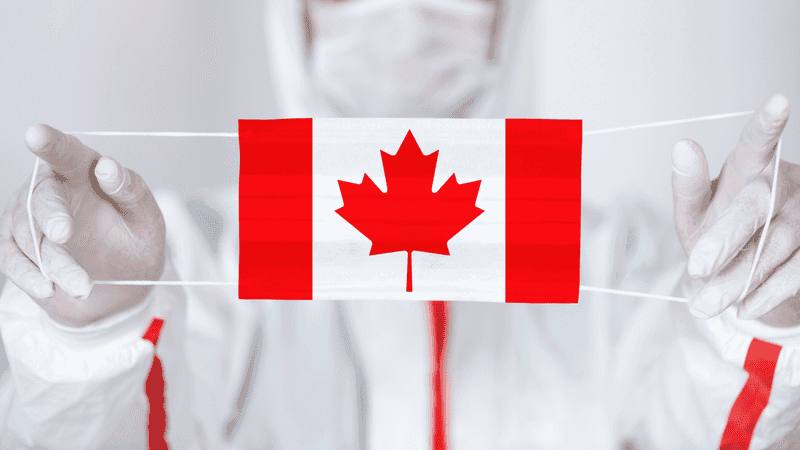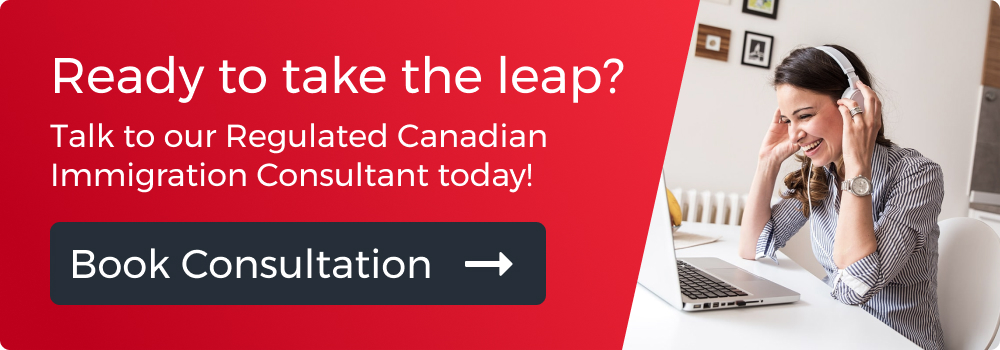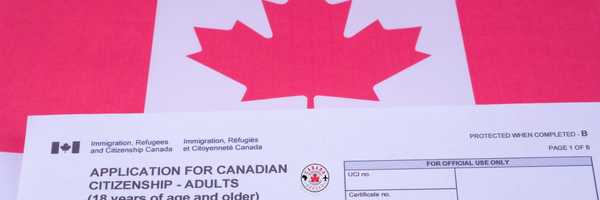New Canadian immigration programs for essential workers and recent graduates


On May 6, 2021, Immigration, Refugees and Citizenship Canada (IRCC) opened four new Canadian immigration programs. These four new Canadian immigration programs will be one-time temporary pathways to permanent residence for those currently working in Canada. These four new Canadian immigration pathways will not re-open annually. Once the intake limit has been met for each of these new programs, they will close permanently. You can now apply online here.
Only 90,000 applications will be accepted for English-speaking applicants, but there will not be a cap on the number of applications that will be accepted for the French-speaking applicants. All of these programs will be open until November 5, 2021, or until the intake cap has been filled. The English-speaking programs will fill up extremely fast, so it will be essential for prospective applicants to start gathering their required documents now and try to prepare their applications in anticipation of the May 6 opening date.
Step 1 – Check if you are eligible to apply
Individuals that are hoping to apply to one of these new programs need to ensure that they meet all of the qualifying criteria of the program they are applying under. IRCC has a free wizard tool on their site to assist people to see if they qualify or not. You will be required to answer a series of questions which will then determine if you are eligible to apply or not.
The below are the main qualifying criteria that will apply to all prospective applicants:
- You must currently be working in Canada on a part-time or full-time basis in any occupation and;
- You must currently have valid authorization to work in Canada (includes those currently working 20 hours a week or less on a valid study permit or those working on implied status) and;
- You must intend to reside outside the province of Quebec and;
- If you are working on implied status as you have applied for a post-graduate work permit (PGWP), you must also meet all of the following requirements:
- you had a valid study permit at the time that you submitted your application for a PGWP,
- you had completed your program of study at the time that you submitted your application for a PGWP,
- you were eligible to work off-campus without a permit at the time that you submitted your application for a PGWP, and
- you did not work off-campus more than 20 hours a week during academic sessions.
For each of these programs, all applicants must also meet the following additional criteria:
- reside in Canada with valid temporary resident status (or be eligible to restore their status) and,
- be physically present in Canada at the time the application for permanent residence is received and,
- by physically present in Canada when the application is approved (no status requirements stipulated at this time) and,
- must not be inadmissible to Canada for any of the following reasons:
- having a criminal record,
- having a serious medical condition that could be a danger to public health or safety, or would cause excessive demand on Canadian health or social services,
- security reasons (you have been involved in espionage, subversion, violence or terrorism, or have been a member of an organization involved in any of these),
- human or international rights violations including war crimes, crimes against humanity, or being a senior official in a government engaged in gross human rights violations or subject to international sanctions,
- one of your family members is inadmissible for one of the above reasons.
Program 1 – Applicants with essential Canadian work experience
This program is for those foreign nationals who have accumulated at least one year of authorized Canadian work experience that meets all of the following requirements:
- be the equivalent of at least one year of full-time work experience, or the equivalent in part-time experience (1,560 hours) and,
- wages or commissions must have been paid to the foreign national for their work and,
- the work must have been in an eligible occupation (please refer to list of eligible occupations here) and,
- the work must have taken place in the three years preceding the date when the application for permanent residence is received and,
- the work must not have been self-employment unless the foreign national was working as a medical doctor in a fee-for-service arrangement with a health authority.
All foreign national also need to meet all of the following requirements:
- Be employed in Canada, in any occupation for which wages or commissions are earned, at the time that their application for permanent residence is received (can be full-time or part-time) and,
- have achieved a CLB or NCLC level 4 in each of the four language skills areas on one of the following approved language tests, the results of which must be less than two years old when the application for permanent residence is received,
- IELTS – General Training
- CELPIP – General Test
- TEF Canada
- TCF Canada

This program has an intake cap and only 50,000 applications will be accepted under this program. This cap is further broken down into Stream A (healthcare-related professions) and Stream B (non-healthcare-related professions). Only 20,000 applications will be accepted for processing under Stream A, and only 30,000 applications will be accepted under Stream B.
Program 2 – French-speaking applicants with essential Canadian work experience
There is no cap on the number of applications that will be accepted for processing for this program. This program is the same as Program #1 with the following exception:
- Applicants need to achieve an NCLC level 4 in each of the four language skills areas on one of the following approved French language tests, the results of which must be less than two years old when the application for permanent residence is received,
- TEF Canada
- TCF Canada
Program 3 – Recent international graduates employed in Canada
This program is for those who have completed an eligible qualification as of January 1, 2017 onwards from an eligible Canadian Designated Learning Institution while on a valid study permit.
The eligible Designated Learning Institutions for this program are:
- a public post-secondary institution, such as a college, trade/technical school, university or in Quebec CEGEP;
- a private post-secondary school in Quebec that operates under the same rules and regulations as public institutions in Quebec;
- a private or public post-secondary institution in Quebec offering qualifying programs of 900 hours or longer leading to a diploma of vocational studies (DVS) or an attestation of vocational specialization (AVS); or
- a Canadian private institution authorized by provincial statute to confer degrees under provincial law but only if the program of study completed was a degree as authorized by the province, which may not include all programs of study offered by the private institution.
The three eligible qualifications for this program are:
- A degree (Associate, Bachelor’s, Master’s, or Doctorate) which must be a degree issued on completion of a program of at least 8 months in duration; or
- A degree, diploma, certificate, or attestation issued on completion of a program of any duration leading to an occupation in a skilled trade listed in Annex A here; or
- one or more diploma/certificate/attestation where the following conditions are met:
- For diplomas/certificates/attestations, each program of study must be at least 8 months in duration AND the combined length of the credential(s) must be equivalent to a two-year credential (at least 16 months in duration).
- For the DVS and AVS, each program of study must be at least 900 hours in duration AND the combined program of study must be at least 1,800 hours in duration.
- When combining one AVS with one DVS, the length of the AVS may be less than 900 hours if the combined length is at least 1,800 hours.
The foreign national also needs to meet all the following requirements:
- Be employed in Canada, in any occupation for which wages or commissions are earned, at the time that their application for permanent residence is received (can be full-time or part-time),
- the work must not be self-employment unless the foreign national was working as a medical doctor in a fee-for-service arrangement with a health authority,
- have achieved a CLB or NCLC level 5 in each of the four language skills areas on one of the following approved language tests, the results of which must be less than two years old when the application for permanent residence is received and,
- IELTS – General Training
- CELPIP – General Test
- TEF Canada
- TCF Canada

This program has an intake cap and only 40,000 applications will be accepted under this program.
Program 4 – French-speaking international graduates employed in Canada
There is no cap on the number of applications that will be accepted for processing for this program. This program is the same as Program #3 with the following exception:
- Applicants need to achieve an NCLC level 5 in each of the four language skills areas on one of the following approved French language tests, the results of which must be less than two years old when the application for permanent residence is received,
- TEF Canada
- TCF Canada
Step 3 – How to apply
Applications for these programs will be submitted through a new dedicated online portal which you can access here. These applications will not be submitted through the Express Entry system. If you have already applied for permanent residence through another stream such as the Canadian Experience Class, you can submit a second application through one of these new streams if you wish, but you will be required to pay the application fees again. The application fees for this program will first need to be paid online through the IRCC online payment portal. You will then need to save a copy of your receipt and you will be required to upload it as part of your application through your online portal. You can now read the full application guide here.
Application fees for these applications will be as follows:
- Principal applicant Processing fee – $550
- Principal applicant right of permanent residence fee – $500 (Can be paid upfront or later in the process)
- Accompanying spouse processing fee – $550
- Accompanying spouse right of permanent residence fee – $500 (Can be paid upfront or later in the process)
- Accompanying dependent child processing fee – $150 per child
- Biometrics – $85 per person OR $170 per family (2 or more people)
Applicants should be prepared to submit the following documents and forms along with their application:
Please note that the below application forms may be updated on May 6th, 2021. Most importantly, the IMM008 will be updated on May 6th, 2021 for the new program. Ensure that you use the most up-to-date versions of these forms as of the day you are submitting your application. This means that if you complete your application forms now in anticipation of submitting an application on May 6th, 2021, ensure you check on May 6th, 2021 that the forms you have completed are still the most up-to-date versions of the forms. Please note that the full application guide is available on the ICCRC website.
- Validated Generic Application Form to Canada (IMM008) for the main applicant
- Schedule A: Background/Declaration (IMM 566) for the main applicant, spouse or common-law partner (whether accompanying or not), and each dependent child over the age of 18 (whether accompanying or not),
- Additional Dependants/Declaration (IMM008DEP) if the principal applicant has more than five dependants (whether they are accompanying or not) for the main applicant
- Supplementary Information – Your Travels (IMM 5562) for the main applicant
- Additional Family Information (IMM 5406) for the main applicant, spouse or common-law partner (whether accompanying or not), and each dependent child over the age of 18 (whether accompanying or not),
- Schedule 3 – Temporary Resident to Permanent Resident Pathway: Streams A & B and International Graduates [IMM 0130]
- Use of Representative (IMM 5406), if applicable
- Statutory Declaration of Common-Law Union (IMM 5409) if you have a Common-Law partner
- Statutory Declaration from Non- Accompanying Parent/Guardian for Minors Immigrating to Canada (IMM 5604) accompanied by the non-accompanying parent’s photo ID showing their signature if the child of the main applicant is not being accompanied by their other parent (a separate form is required for each child)
- Copy of the pages of your passport or travel document for the main applicant, their spouse or common-law partner and their dependent children, showing:
- The passport number,
- The date of issue and expiry,
- The photo, name date and place of birth,
- Pages showing any amendments in name, date of birth, expiration, etc
- Proof of authorized status in Canada for the main applicant and their spouse or common-law partner and their dependent children (if applicable)
- Valid language test result (proof of bookings will not be accepted) for the main applicant
- Police certificates for each country that you have lived in for six months or more in a row since the age of 18 (or proof that you have already applied for them with a letter of explanation) for the main applicant, spouse or common-law partner, and each dependent child over the age of 18
- Birth certificate for the main applicant, their spouse or common-law partner and their dependent children (birth certificates for children need to list both parent’s details on them)
- Marriage certificate for the main applicant and their spouse (if applicable)
- Final divorce or annulment certificate(s) for the main applicant and their spouse (if applicable)
- Death certificate for any former spouses or common-law partner for the main applicant and their spouse (if applicable)
- Adoption papers issued by recognized national authorities showing the legal, approved adoption of adopted dependent children (if applicable)
- Digital photo of each family member
- Proof of current employment in Canada for the main applicant which can include:
- Employer reference letter(s) that include:
- The specific dates of your employment (to/from dates)
- Description of your main responsibilities and duties
- The corresponding NOC code (if known)
- Your total annual salary and benefits
- The number of hours you worked per week
- Your employer’s name, signature, full address, telephone number, and email address (if applicable)
- Be on company letterhead
- Copies of your T4 tax information and your Notice of Assessments
- Works contracts
- Pay stubs
- Employer reference letter(s) that include:
- For those currently living in Quebec, you would need to include a settlement plan or letter to explain to an officer your intention to reside outside of Quebec
- Proof of previously completed medical examinations for the main applicant, their spouse or common-law partner and their dependent children or proof of existing booking for medical examination with a letter of explanation
For those applying as essential workers, (whether English or French speaking), you will also need to include the following:
- Proof of work experience identified in your application that accumulates one year of eligible Canadian work experience which includes:
- Employer reference letter(s) that must include:
- The specific dates of your employment (to/from dates)
- Description of your main responsibilities and duties
- The corresponding NOC code (if known)
- Your total annual salary and benefits
- The number of hours you worked per week
- Your employer’s name, signature, full address, telephone number and email address (if applicable)
- Be on company letterhead
- Copies of your T4 tax information and your Notice of Assessments
- Works contracts
- Pay stubs
- Employer reference letter(s) that must include:
For those applying as recent graduates (whether English or French speaking), you will also need to include the following:
- Proof of completed eligible Canadian education which includes:
- A final transcript, and
- A letter from the institution and/or the formal notice of graduation
- You must provide proof that shows:
- The type of credential granted (degree, diploma, certificate, or attestation)
- The length (in weeks, months, or years) of the program of study,
- That you were authorized to study for the duration of studies,
- the date of completion;
- the name of the school that granted the degree, diploma, certificate, or attestation
All documents that are not in Frenech or English will need to be translated according to the translation requirements set out in the application guide.
It is important to note that with these applications, applications will not be cancelled as incomplete after a completeness check. This means that applications will be fully processed and refused if they are incomplete. This means that application fees will not be refunded if the application is refused, and applicants will not know that there was a problem with their application until the full processing time has elapsed and they reach a final decision. You will not likely be able to resubmit an application as the programs will likely be closed by the time you receive a final decision on your application.


